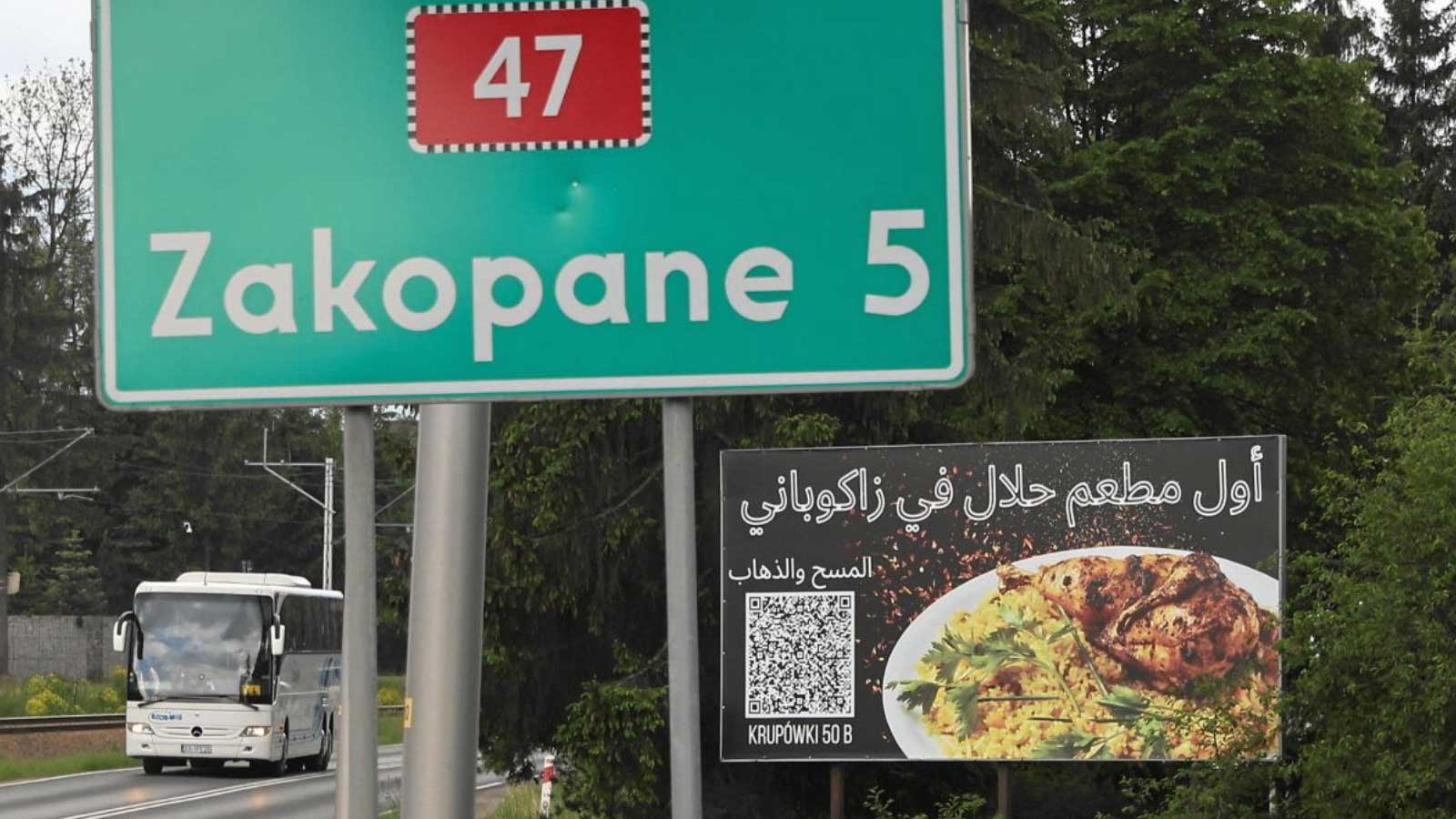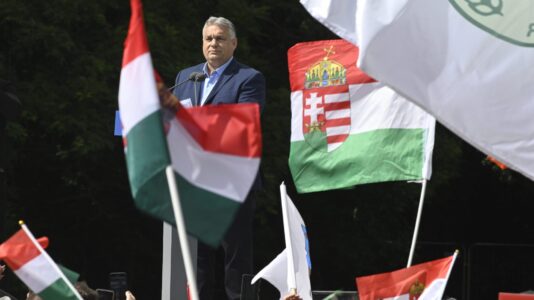Arabic billboards have been spotted at a tourist hotspot in the Polish highlands as local businesses seek to capitalize on a significant increase in tourism from the Middle East.
In the resort town of Zakopane, located in southern Poland at the base of the Tatra Mountains, billboard advertisements have been created by Polish restaurant owners promoting their establishments as halal.
“The first halal restaurant in Zakopane,” one inscription reads alongside a QR code that provides directions to the eatery.
Polish newspaper Gazeta Wyborcza reported how local businesses are looking to entice wealthy tourists primarily from Bahrain, the United Arab Emirates, and Qatar, all of whom are viewed as preferable clientele to Europeans due to their lavish spending in restaurants, clothing stores, and desire to visit tourist attractions.
“We have about 20 percent more reservations from this direction than in the same period last year,” Karol Wagner of the Tatra Chamber of Commerce said recently about the hike in tourism from the Arabian Peninsula. “These reservations are constantly increasing,” she added.
On Krupówki Street in Zakopane, further Arabic banners can be seen outside restaurants including one promoting that the establishment sells fresh halal meat and has a prayer room for visitors.
Arab visitors have replaced the previous trade of wealthy Russian and Belarusian tourists in light of the ongoing conflict in Ukraine, and business owners want to make it as easy as possible for their new customers.
“Now, when tourists from Arab countries come, we adapt to them,” explained another representative of the Tatra Chamber of Commerce.
Locals are using AI technology to provide accurate translations.
“Yesterday, I wrote an e-mail in Arabic, even though I don’t know the language. First, I wrote it in the translator of a popular web browser, but since I wasn’t sure about it, I copied the text to AI. And he told me what semantics I wanted to achieve in the Arabic statement and suggested alternative solutions,” one business owner told the Polish newspaper.
“This is a consequence of the innate skill of Podhale entrepreneurs combined with the most modern AI solutions,” Wagner added.
Not all locals are happy with the cultural change, explained Agata Wojtowicz, chairwoman of the Tatra County Council.
“I remember the moment when customers from the Middle East visited us for the first time. There was a lot of noise and even a little outrage at the time. Every person is first afraid of something he doesn’t know. Questions arose in Zakopane, like ‘What are they doing here?,’ and that it is a problem,” she said.
“But look how quickly we overcame the resistance and changed our approach. This billboard is another step in our flexibility.”






